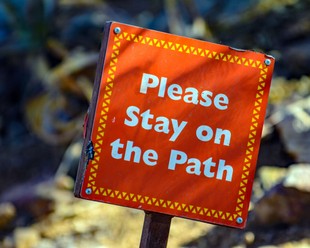Don’t get me wrong, I like Product Hunt. I scroll sometimes and check out what’s been posted and give an upvote here and there.
But what I don’t like about Product Hunt is this idea that seems to permeate a lot of the startup/indie maker crowd that goes like this:
Build product -> tweet about it -> launch on Product Hunt -> if good launch, profit -> else, start again“
Sorry, but I just don’t buy into a Product Hunt launch as being the main determinant of whether a product is successful or not. And for my business, Product Hunt hasn’t even been something I’ve considered up to this point.
Here’s why.
What’s the best-case scenario?
Let’s start by thinking about the best-case scenario: your product shoots to the top of the Product Hunt rankings for the day and snags the #1 spot. What does that actually do for you and your business?
I would argue it’s a sugar high that doesn’t result in any real, long-term growth. And if you look at some product creators who share their results publicly, you can see that success on Product Hunt doesn’t necessarily translate into big sales.
For example, indie maker Tony Dinh tweeted about the results of his product, Black Magic which was #1 on Product Hunt.
From that very successful launch, he got 431 free users resulting in a grand total of 4 paid subscribers.
Now I guess he must have had a few more free subscribers roll over to paid later on, but that’s a lot of people in your funnel that are not converting.
If you think about it, that makes sense though. The people coming to Product Hunt are curious and looking for a distraction, not necessarily looking to solve an immediate pressing need that they are willing to pay for.
So it doesn’t surprise me that you see a ton of curiosity followed by free sign-ups… but then 5 minutes later they are onto the next thing.
You can see the same trend from other makers who have written about their results on Product Hunt. For example, Andrey Azimov was named Product Hunt’s Maker of the Year in 2019 for building a bunch of different apps that ranked highly on the platform.
But if you read further into Andrey’s story, none of these multiple successes on Product Hunt played much of a role in reaching his goal of $1k MRR (monthly recurring revenue).
It wasn’t until he revisited one of his earlier launches and started adding features and pricing plans that his MRR really started to take off.
The day after the launch
Which brings me to the next point: after the buzz and subsequent letdown of a launch, what will you do?
- That profit that you assumed will come from getting a top Product Hunt spot, where does it actually come from?
- Once all of the sugar-high traffic from a launch wears off, where are you going to continue to get traffic from?
These are questions that you should be thinking about before a launch and are much more important than the build-up and prep for a one-time event.
If you can steadily attract users to your website and can produce content that solves people’s problems, you will be able to sell them something eventually. And to me, that’s the best use of your time, rather than trying to create some buzz around a product that might not have any real-world use.
These are the things that Andrey started to focus on for the product that really grew to the level to sustain him. He redesigned his landing page, added testimonials, made a promo video, documentation, and a showcase of websites built with his tool while experimenting with his pricing.
And these are the things that have given me results with my own products: writing blog posts, redesigning the checkout process by adding local currencies, and adding premium pricing plans that have more features.
Building products for product people
But you might be thinking - ok, maybe I won’t get a ton of paid users from a Product Hunt launch, but I can at least get a ton of feedback, right?
Sure, you will get a lot of that. But you will find sooner than you might think, that as a startup founder or indie maker, you will have a lot more ideas of features to build than you will have time.
So gathering feedback is not necessarily something that you will need to spend a lot of time on. Instead, you will need to focus on prioritizing feedback into things that your target market really wants and will pay for.
And that’s where you need to ask a tough question: does your target market actually hang out and participate much on Product Hunt?
Think about the products that tend to be most popular on Product Hunt. Cool distractions that people like to share or products aimed at product managers and developers.
If you are building something like this, sure Product Hunt is probably a good place to get in front of your target market for a day.
But if you’re not, you’ll probably end up with a lot of feedback that is not representative of what your target market really thinks. Based on this, you might get pulled in the wrong direction or worst of all get discouraged and give up.
Failure on Product Hunt does not mean failure IRL
Products that tend to do well on Product Hunt are for a certain type of people - if your product doesn’t appeal to them, it doesn’t mean you’re a failure. It just means your product doesn’t appeal to the Product Hunt crowd.
Don’t buy into the idea that if your launch fails on Product Hunt, you pack it in and move on to the next thing.
Let’s think back to the last two points to see why. If the result you get from a successful launch is some vanity traffic with no conversions and the feedback you get is heavily skewed to product people, what does a failure actually mean?
I’d argue not very much.
This is why I cringe a bit when I see people following Peter Levels and launching 12 startups in 12 months, with the main metric for success being whether they have a successful Product Hunt launch or not.
Focus on solving small problems for your target market by creating content that brings them to you, and then solve bigger and bigger problems that you can charge more for.
That’s what I’m doing and to be honest, with all of that work to do, I just haven’t had time to think about doing a Product Hunt launch.





